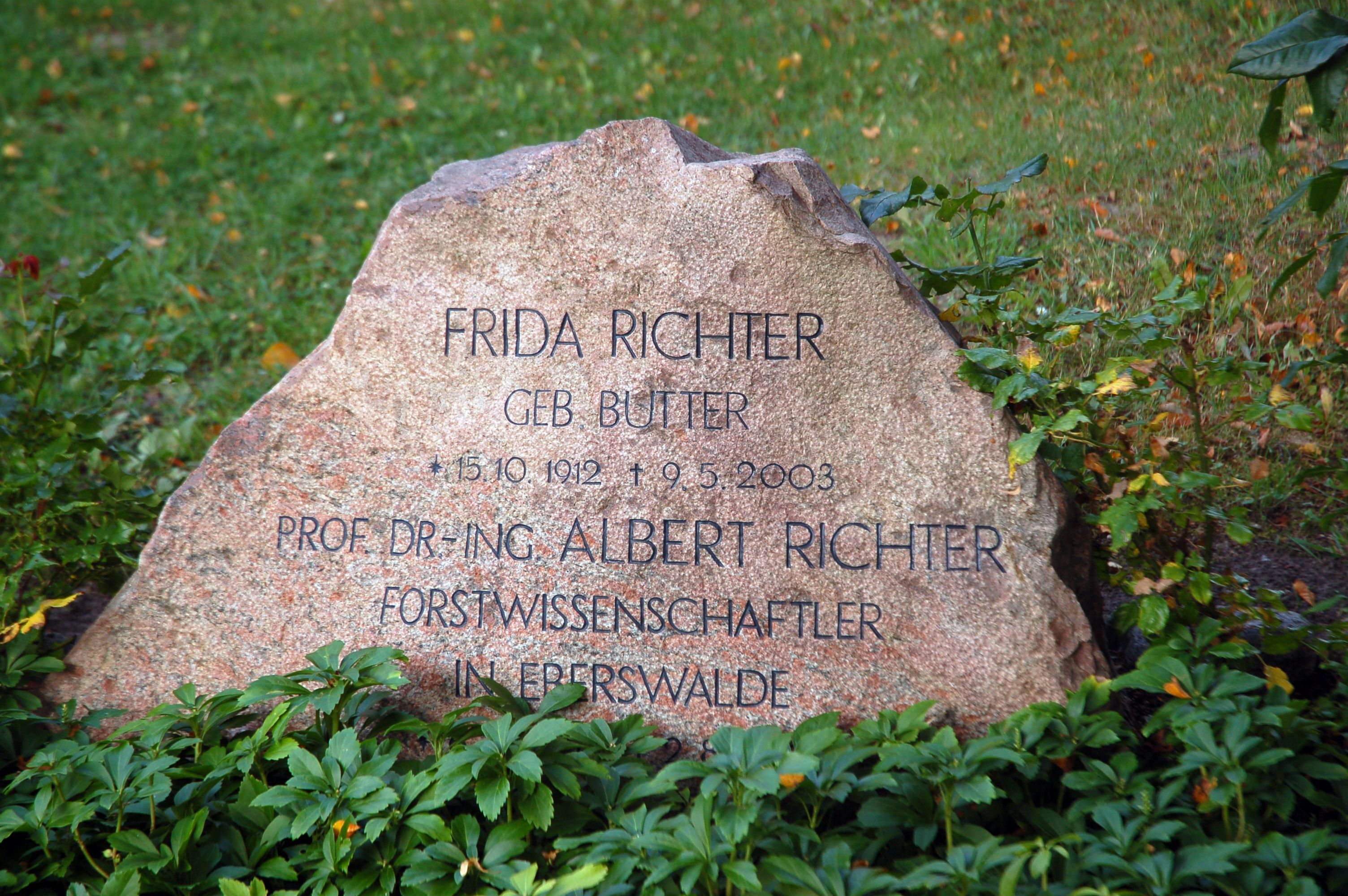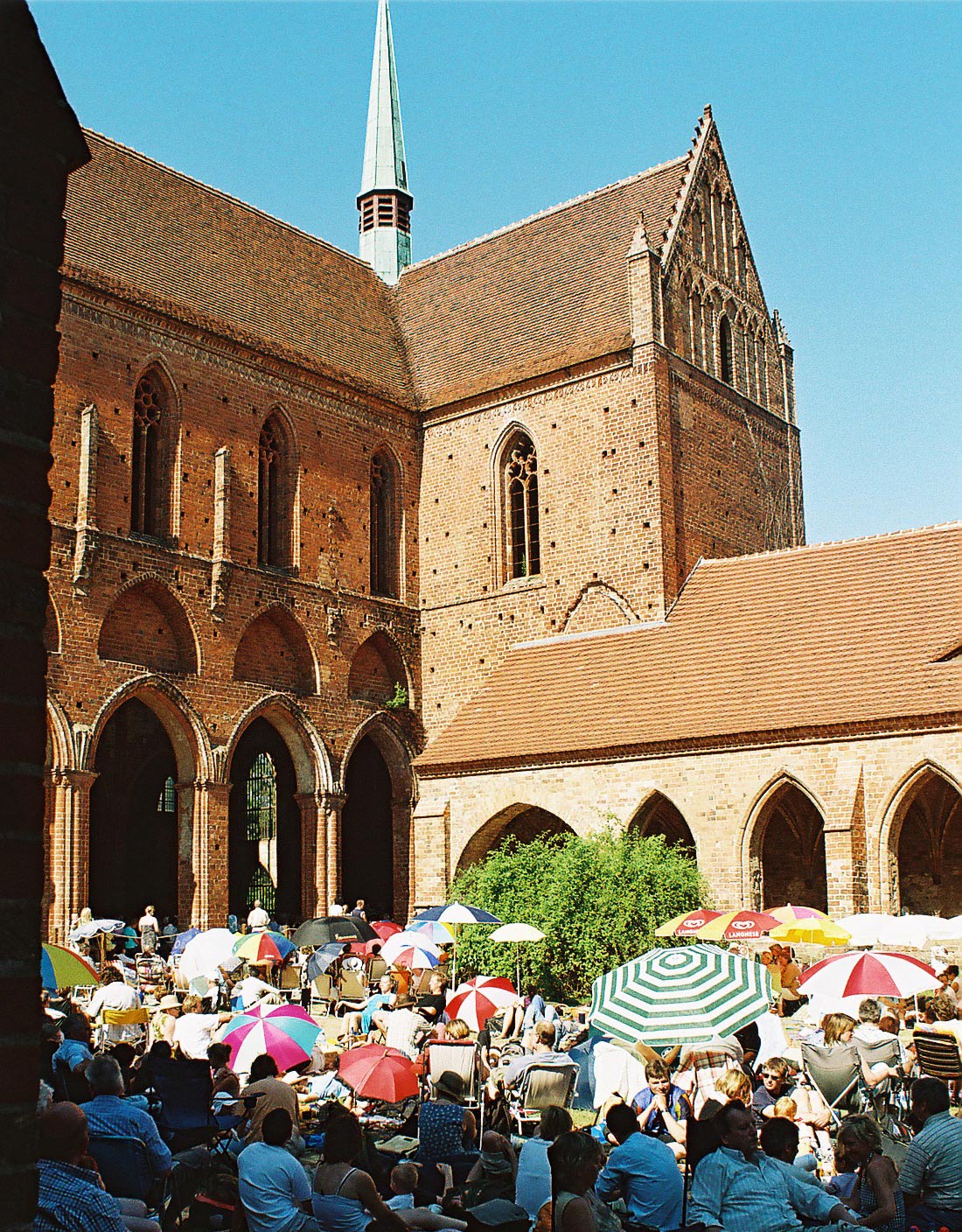|
Albert Richter (forester)
Albert Richter (6 May 1909 – 2 August 2007) was a German academic and expert in silviculture or forest management. He is notable for founding the Choriner Musiksommer music festival, developing a new planning-process for forest management for the German Democratic Republic in the 1950s, and writing several works on the history of forest management, including a biography of Heinrich Cotta. He also served as a professor and director of the Forestry College in Eberswalde. Richter was born in Lossnitz in Freiberg, Saxony in 1909 and died, aged 98, at Eberswalde in Brandenburg in 2007. External linksBooks by and about Albert Richterin the Deutschen Nationalbibliothek The German National Library (DNB; german: Deutsche Nationalbibliothek) is the central archival library and national bibliographic centre for the Federal Republic of Germany. It is one of the largest libraries in the world. Its task is to colle ... *https://web.archive.org/web/20070927202539/http://www.moz.de/inde ... [...More Info...] [...Related Items...] OR: [Wikipedia] [Google] [Baidu] |
Silviculture
Silviculture is the practice of controlling the growth, composition/structure, and quality of forests to meet values and needs, specifically timber production. The name comes from the Latin ('forest') and ('growing'). The study of forests and woods is termed '' silvology''. Silviculture also focuses on making sure that the treatment(s) of forest stands are used to conserve and improve their productivity. Generally, silviculture is the science and art of growing and cultivating forest crops, based on a knowledge of silvics (the study of the life-history and general characteristics of forest trees and stands, with particular reference to local/regional factors). The focus of silviculture is the control, establishment and management of forest stands. The distinction between forestry and silviculture is that silviculture is applied at the stand-level, while forestry is a broader concept. Adaptive management is common in silviculture, while forestry can include natural/conserved ... [...More Info...] [...Related Items...] OR: [Wikipedia] [Google] [Baidu] |
Choriner Musiksommer
The Choriner Musiksommer (literally, ''Chorin's Summer of Music'') is an outdoor music festival held in the ruins of the convent of Chorin Abbey in Chorin, Brandenburg, Germany. It originated as a single annual concert, established on 23 May 1964 by Albert Richter as an event for employees of the Hochschule für nachhaltige Entwicklung (Eberswalde University for Sustainable Development) in Eberswalde. The forest administration then managed the monastery ruins. So they became the venue for the concert. The number of concerts was raised to four in 1970 and from then until 1973 numbers rose from 600 to 1200 and finally 2,100 per concert. In 1974 the number of concerts was increased to thirteen. After the fall of the Berlin Wall The fall of the Berlin Wall (german: Mauerfall) on 9 November 1989, during the Peaceful Revolution, was a pivotal event in world history which marked the destruction of the Berlin Wall and the figurative Iron Curtain and one of the series of ... in 1 ... [...More Info...] [...Related Items...] OR: [Wikipedia] [Google] [Baidu] |
German Democratic Republic
German(s) may refer to: * Germany (of or related to) **Germania (historical use) * Germans, citizens of Germany, people of German ancestry, or native speakers of the German language ** For citizens of Germany, see also German nationality law **Germanic peoples (Roman times) * German language **any of the Germanic languages * German cuisine, traditional foods of Germany People * German (given name) * German (surname) * Germán, a Spanish name Places * German (parish), Isle of Man * German, Albania, or Gërmej * German, Bulgaria * German, Iran * German, North Macedonia * German, New York, U.S. * Agios Germanos, Greece Other uses * German (mythology), a South Slavic mythological being * Germans (band), a Canadian rock band * "German" (song), a 2019 song by No Money Enterprise * ''The German'', a 2008 short film * "The Germans", an episode of ''Fawlty Towers'' * ''The German'', a nickname for Congolese rebel André Kisase Ngandu See also * Germanic (disambiguation ... [...More Info...] [...Related Items...] OR: [Wikipedia] [Google] [Baidu] |
Heinrich Cotta
Johann Heinrich Cotta, also Heinrich von Cotta, (30 October 1763 – 25 October 1844) was a German silviculturist who was a native of Kleine Zillbach, near Wasungen, Thuringia. He was founder of the Royal Saxon Academy of Forestry, in Tharandt, and is known as a pioneer of scientific forestry. He was the father of the geologist Bernhard von Cotta (1808–1879). Education and early career Cotta reportedly said of himself: :"I am a child of the forest; no roof covers the spot where I was born. Old oaks and beeches shade its solitude and grass grows upon it. The first song I heard was of the birds of the forest, my first surroundings were trees. Thus my birth determined my calling!" Initially learning forestry from his father, in 1784–85 Cotta enrolled at the University of Jena, where he studied mathematics, natural sciences and cameralism (public administration). In 1785, he returned to Zillbach to teach forestry at one of the earliest master schools of forestry, with ... [...More Info...] [...Related Items...] OR: [Wikipedia] [Google] [Baidu] |
Hochschule Für Nachhaltige Entwicklung Eberswalde
The Eberswalde University for Sustainable Development (german: Hochschule für nachhaltige Entwicklung Eberswalde, literally ''University for Sustainable Development''; abbreviated in German as ''HNE Eberswalde'' or ''HNEE'') is a Fachhochschule in Eberswalde, Germany. It was founded 1830 as a higher institute (''Höhere Forstlehranstalt'') of forestry. It was re-established in its present form as a Fachhochschule, or university of applied sciences, in 1992, with a range of courses and content geared towards sustainable development. In 2010 it was renamed the Entwicklung Eberswalde (FH). Since December 1997 its president has been Wilhelm-Günther Vahrson. Notable person *Julius Lothar Meyer See also * List of historic schools of forestry This is a list of historic schools of forestry, by founding date. Also included is information about each school's location, founder(s), present status, and (where applicable) closing date. Many remain active. 1700s * 1778 - A course of s ... [...More Info...] [...Related Items...] OR: [Wikipedia] [Google] [Baidu] |
Freiberg
Freiberg is a university and former mining town in Saxony, Germany. It is a so-called ''Große Kreisstadt'' (large county town) and the administrative centre of Mittelsachsen district. Its historic town centre has been placed under heritage conservation and is a part of the UNESCO World Heritage Site known as the Ore Mountain Mining Region, due to its exceptional testimony to the development of mining techniques across many centuries. Until 1969, the town was dominated for around 800 years by the mining and smelting industries. In recent decades it has restructured into a high technology site in the fields of semiconductor manufacture and solar technology, part of Silicon Saxony. It is home of the oldest university of mining and metallurgy in the world – the Freiberg University of Mining and Technology. Geography Location The town lies on the northern declivity of the Ore Mountains, with the majority of the borough west of the Eastern or Freiberger Mulde river. P ... [...More Info...] [...Related Items...] OR: [Wikipedia] [Google] [Baidu] |
Saxony
Saxony (german: Sachsen ; Upper Saxon: ''Saggsn''; hsb, Sakska), officially the Free State of Saxony (german: Freistaat Sachsen, links=no ; Upper Saxon: ''Freischdaad Saggsn''; hsb, Swobodny stat Sakska, links=no), is a landlocked state of Germany, bordering the states of Brandenburg, Saxony-Anhalt, Thuringia, Bavaria, as well as the countries of Poland and the Czech Republic. Its capital is Dresden, and its largest city is Leipzig. Saxony is the tenth largest of Germany's sixteen states, with an area of , and the sixth most populous, with more than 4 million inhabitants. The term Saxony has been in use for more than a millennium. It was used for the medieval Duchy of Saxony, the Electorate of Saxony of the Holy Roman Empire, the Kingdom of Saxony, and twice for a republic. The first Free State of Saxony was established in 1918 as a constituent state of the Weimar Republic. After World War II, it was under Soviet occupation before it became part of the communist East ... [...More Info...] [...Related Items...] OR: [Wikipedia] [Google] [Baidu] |
Eberswalde
Eberswalde () is a major town and the administrative seat of the district Barnim in the German State ( Bundesland / ''federated state'') of Brandenburg, about 50 km northeast of Berlin. Population 42,144 (census in June 2005), geographical location . The town is often called Waldstadt (forest town), because of the large forests around it, including the Schorfheide-Chorin Biosphere Reserve. Despite this fact, Eberswalde was an important industrial center until the German Reunification. History Prehistory The area around Eberswalde was already populated in Paleolithic. Before the establishment of the Margraviate of Brandenburg it was the place of a Slavic stockade. The Treasure of Eberswalde, the largest pre-Christian gold treasure from the area of today's Germany was found here. Today the treasure is located in the Pushkin Museum in Moscow. Founding and development The town of ''Everswolde'' ("forest of the boars") was established in 1254 by the Ascanian margrav ... [...More Info...] [...Related Items...] OR: [Wikipedia] [Google] [Baidu] |
Brandenburg
Brandenburg (; nds, Brannenborg; dsb, Bramborska ) is a state in the northeast of Germany bordering the states of Mecklenburg-Vorpommern, Lower Saxony, Saxony-Anhalt, and Saxony, as well as the country of Poland. With an area of 29,480 square kilometres (11,382 square miles) and a population of 2.5 million residents, it is the fifth-largest German state by area and the tenth-most populous. Potsdam is the state capital and largest city, and other major towns are Cottbus, Brandenburg an der Havel and Frankfurt (Oder). Brandenburg surrounds the national capital and city-state of Berlin, and together they form the Berlin/Brandenburg Metropolitan Region, the third-largest metropolitan area in Germany with a total population of about 6.2 million. There was an unsuccessful attempt to unify both states in 1996 and the states cooperate on many matters to this day. Brandenburg originated in the Northern March in the 900s AD, from areas conquered from the Wends. It later became the ... [...More Info...] [...Related Items...] OR: [Wikipedia] [Google] [Baidu] |
Deutschen Nationalbibliothek
The German National Library (DNB; german: Deutsche Nationalbibliothek) is the central archival library and national bibliographic centre for the Federal Republic of Germany. It is one of the largest libraries in the world. Its task is to collect, permanently archive, comprehensively document and record bibliographically all German and German-language publications since 1913, foreign publications about Germany, translations of German works, and the works of German-speaking emigrants published abroad between 1933 and 1945, and to make them available to the public. The DNB is also responsible for the and several special collections like the (German Exile Archive), and the (German Museum of Books and Writing). The German National Library maintains co-operative external relations on a national and international level. For example, it is the leading partner in developing and maintaining bibliographic rules and standards in Germany and plays a significant role in the development of ... [...More Info...] [...Related Items...] OR: [Wikipedia] [Google] [Baidu] |
Scientists From Saxony
A scientist is a person who conducts scientific research to advance knowledge in an area of the natural sciences. In classical antiquity, there was no real ancient analog of a modern scientist. Instead, philosophers engaged in the philosophical study of nature called natural philosophy, a precursor of natural science. Though Thales (circa 624-545 BC) was arguably the first scientist for describing how cosmic events may be seen as natural, not necessarily caused by gods,Frank N. Magill''The Ancient World: Dictionary of World Biography'', Volume 1 Routledge, 2003 it was not until the 19th century that the term ''scientist'' came into regular use after it was coined by the theologian, philosopher, and historian of science William Whewell in 1833. In modern times, many scientists have advanced degrees in an area of science and pursue careers in various sectors of the economy such as academia, industry, government, and nonprofit environments.'''' History The ... [...More Info...] [...Related Items...] OR: [Wikipedia] [Google] [Baidu] |





